Title: NUS Theatre Studies Joint Book Launch featuring Bodies and Transformance in Taiwanese Contemporary Theater by Dr Peilin Liang, Theatre-Fiction in Britain from Henry James to Doris Lessing: Writing in the Wings by Dr Graham Wolfe, and Enacting Lecoq: Movement in Theatre, Cognition, and Life by Dr Maiya Murphy
Date: Wednesday, 9 October 2019
Time: 6:30-9:05pm
Venue: The Pod, NLB
Organizers: FASS Research Division
Description
Three authors will share their new books dealing with the study of theatre:
- Bodies and Transformance in Taiwanese Contemporary Theater (Routledge, 2019) by Dr Peilin Liang, Assistant Professor, NUS English Language & Literature
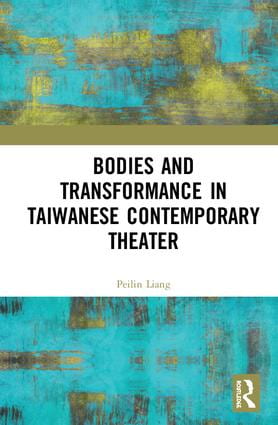 In Bodies and Transformance in Taiwanese Contemporary Theater, Peilin Liang develops a theory of bodily transformation. Proposing the concept of transformance, a conscious and rigorous process of self-cultivation toward a reconceptualized body, Liang shows how theater practitioners of minoritized cultures adopt transformance as a strategy to counteract the embodied practices of ideological and economic hegemony. This book observes key Taiwanese contemporary theater practitioners at work in forging five reconceptualized bodies: the energized, the rhythmic, the ritualized, the joyous, and the (re)productive. By focusing on the development of transformance between the years of 2000–2008, a tumultuous political watershed in Taiwan’s history, the author succeeds in bridging postcolonialism and interculturalism in her conceptual framework. Ideal for scholars of Asian and Postcolonial Theater, Bodies and Transformance in Taiwanese Contemporary Theater shows how transformance, rather than performance, calibrates with far greater precision and acuity the state of the body and the culture that it seeks to create.
In Bodies and Transformance in Taiwanese Contemporary Theater, Peilin Liang develops a theory of bodily transformation. Proposing the concept of transformance, a conscious and rigorous process of self-cultivation toward a reconceptualized body, Liang shows how theater practitioners of minoritized cultures adopt transformance as a strategy to counteract the embodied practices of ideological and economic hegemony. This book observes key Taiwanese contemporary theater practitioners at work in forging five reconceptualized bodies: the energized, the rhythmic, the ritualized, the joyous, and the (re)productive. By focusing on the development of transformance between the years of 2000–2008, a tumultuous political watershed in Taiwan’s history, the author succeeds in bridging postcolonialism and interculturalism in her conceptual framework. Ideal for scholars of Asian and Postcolonial Theater, Bodies and Transformance in Taiwanese Contemporary Theater shows how transformance, rather than performance, calibrates with far greater precision and acuity the state of the body and the culture that it seeks to create.
2. Theatre-Fiction in Britain from Henry James to Doris Lessing: Writing in the Wings (Routledge, 2019) by Dr Graham Wolfe, Associate Professor, NUS English Language & Literature
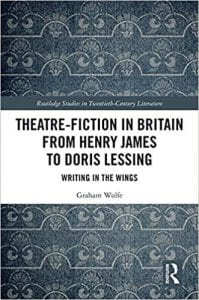 This volume posits and explores an intermedial genre called theatre-fiction, understood in its broadest sense as referring to novels and stories that engage in concrete and sustained ways with theatre. Though theatre has made star appearances in dozens of literary fictions, including many by modern history’s most influential authors, no full-length study has dedicated itself specifically to theatre-fiction―in fact there has not even been a recognized name for the phenomenon. Focusing on Britain, where most of the world’s theatre-novels have been produced, and commencing in the late-nineteenth century, when theatre increasingly took on major roles in novels, Theatre-Fiction in Britain argues for the benefits of considering these works in relation to each other, to a history of development, and to the theatre of their time. New modes of intermedial analysis are modelled through close studies of Henry James, Somerset Maugham, Virginia Woolf, J. B. Priestley, Ngaio Marsh, Angela Carter, and Doris Lessing, all of whom were deeply involved in the theatre-world as playwrights, directors, reviewers, and theorists. Drawing as much on theatre scholarship as on literary theory, Theatre-Fiction in Britain presents theatre-fiction as one of the past century’s most vital means of exploring, reconsidering, and bringing forth theatre’s potentials.
This volume posits and explores an intermedial genre called theatre-fiction, understood in its broadest sense as referring to novels and stories that engage in concrete and sustained ways with theatre. Though theatre has made star appearances in dozens of literary fictions, including many by modern history’s most influential authors, no full-length study has dedicated itself specifically to theatre-fiction―in fact there has not even been a recognized name for the phenomenon. Focusing on Britain, where most of the world’s theatre-novels have been produced, and commencing in the late-nineteenth century, when theatre increasingly took on major roles in novels, Theatre-Fiction in Britain argues for the benefits of considering these works in relation to each other, to a history of development, and to the theatre of their time. New modes of intermedial analysis are modelled through close studies of Henry James, Somerset Maugham, Virginia Woolf, J. B. Priestley, Ngaio Marsh, Angela Carter, and Doris Lessing, all of whom were deeply involved in the theatre-world as playwrights, directors, reviewers, and theorists. Drawing as much on theatre scholarship as on literary theory, Theatre-Fiction in Britain presents theatre-fiction as one of the past century’s most vital means of exploring, reconsidering, and bringing forth theatre’s potentials.
3. Enacting Lecoq: Movement in Theatre, Cognition, and Life (Palgrave Macmillan, 2019) by Dr Maiya Murphy, Assistant Professor, NUS English Language & Literature
This book examines the theatrical movement-based pedagogy of Jacques Lecoq (1921-1999)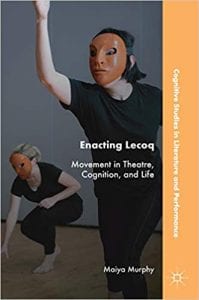 through the lens of the cognitive scientific paradigm of enaction. The conversation between these two both uncovers more of the possible cognitive processes at work in Lecoq pedagogy and proposes how Lecoq’s own practical and philosophical approach could have something to offer the development of the enactive paradigm. Understanding Lecoq pedagogy through enaction can shed new light on the ways that movement, key to Lecoq’s own articulation of his pedagogy, might cognitively constitute the development of Lecoq’s ultimate creative figure – the actor-creator. Through an enactive lens, the actor-creator can be understood as not only a creative figure, but also the manifestation of a fundamentally new mode of cognitive selfhood. This book engages with Lecoq pedagogy’s significant practices and principles including the relationship between the instructor and student, identifications, mime, play, mask work, language, improvisation, and movement analysis.
through the lens of the cognitive scientific paradigm of enaction. The conversation between these two both uncovers more of the possible cognitive processes at work in Lecoq pedagogy and proposes how Lecoq’s own practical and philosophical approach could have something to offer the development of the enactive paradigm. Understanding Lecoq pedagogy through enaction can shed new light on the ways that movement, key to Lecoq’s own articulation of his pedagogy, might cognitively constitute the development of Lecoq’s ultimate creative figure – the actor-creator. Through an enactive lens, the actor-creator can be understood as not only a creative figure, but also the manifestation of a fundamentally new mode of cognitive selfhood. This book engages with Lecoq pedagogy’s significant practices and principles including the relationship between the instructor and student, identifications, mime, play, mask work, language, improvisation, and movement analysis.
Programme
6:30-7:00pm – Registration/Refreshments/Books available for purchase
7:00-7:05pm – Welcome Remarks by Chair, Dr Walter Lim, Associate Professor, NUS English Language & Literature
7:05-7:25pm – Peilin Liang Presentation on Bodies and Transformance in Taiwanese Contemporary Theater
7:25-7:45pm – Graham Wolfe Presentation on Theatre-Fiction in Britain from Henry James to Doris Lessing: Writing in the Wings
7:45-8:05pm – Maiya Murphy Presentation on Enacting Lecoq: Movement in Theatre, Cognition, and Life
8:05-8:35pm – Q and A/Discussion, Moderated by Chair
8:35-9:05pm – Book Sale with Autograph Signing
Author Bios
As a researcher, educator, facilitator and translator of theatre and performance, Peilin 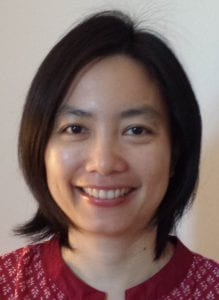 Liang is immensely interested in storytelling through shapeshifting. She received her MA in English from the University of Auckland and her PhD from the Department of Theatre and Dance at the University of Hawaii at Mānoa. Prior to her appointment at the National University of Singapore, she was a postdoctoral fellow with the Asian Studies Department at the University of Texas at Austin. Her research interests include (post)colonialism, minor transnationalism, cultural diversity and dynamics of cross-cultural exchange in relation to body training, performance pedagogy, and theatre.
Liang is immensely interested in storytelling through shapeshifting. She received her MA in English from the University of Auckland and her PhD from the Department of Theatre and Dance at the University of Hawaii at Mānoa. Prior to her appointment at the National University of Singapore, she was a postdoctoral fellow with the Asian Studies Department at the University of Texas at Austin. Her research interests include (post)colonialism, minor transnationalism, cultural diversity and dynamics of cross-cultural exchange in relation to body training, performance pedagogy, and theatre.
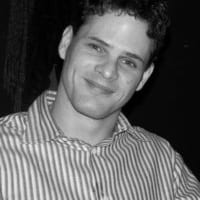 Graham Wolfe is an Associate Professor in the Theatre Studies division of the English Language & Literature Department at NUS. He came to Singapore in 2012, having lived for most of his life in Canada. He has also taught at the University of Toronto, where he completed his Masters and PhD in Drama. He also holds a BA (Honours) and B.Ed from Queen’s University, Canada. At NUS, he teaches “Major Playwrights of the 20th Century”, “Theatre and Postmodernism”, and “The Theatre Experience”.
Graham Wolfe is an Associate Professor in the Theatre Studies division of the English Language & Literature Department at NUS. He came to Singapore in 2012, having lived for most of his life in Canada. He has also taught at the University of Toronto, where he completed his Masters and PhD in Drama. He also holds a BA (Honours) and B.Ed from Queen’s University, Canada. At NUS, he teaches “Major Playwrights of the 20th Century”, “Theatre and Postmodernism”, and “The Theatre Experience”.
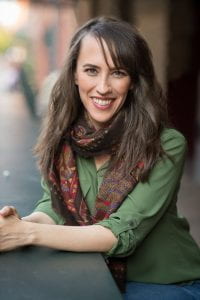 Maiya Murphy is a researcher, teacher, deviser, and performer. She began her career as an actor and dancer focused on movement-based training, creation, and performance. Her practical background informs her research on relationships between practice, theory, movement, and the cognitive sciences. She received her BA in Theater Studies from Yale University, trained in Lecoq-based pedagogy at the London International School of Performing Arts (LISPA), and received her Ph.D. in Theatre and Drama from the University of California, San Diego. She also makes theatre with her collective, Autopoetics.
Maiya Murphy is a researcher, teacher, deviser, and performer. She began her career as an actor and dancer focused on movement-based training, creation, and performance. Her practical background informs her research on relationships between practice, theory, movement, and the cognitive sciences. She received her BA in Theater Studies from Yale University, trained in Lecoq-based pedagogy at the London International School of Performing Arts (LISPA), and received her Ph.D. in Theatre and Drama from the University of California, San Diego. She also makes theatre with her collective, Autopoetics.